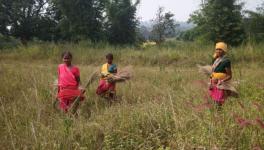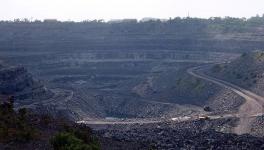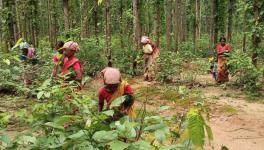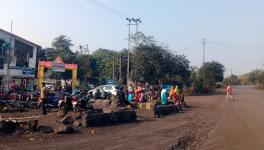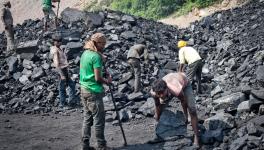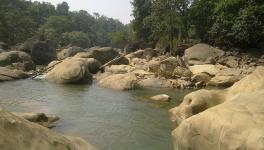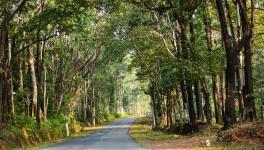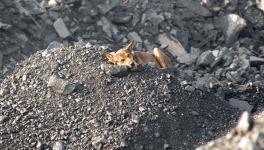Hasdeo Aranya: Demand to Defer Kente Besan Public Hearing on July 14 Grows
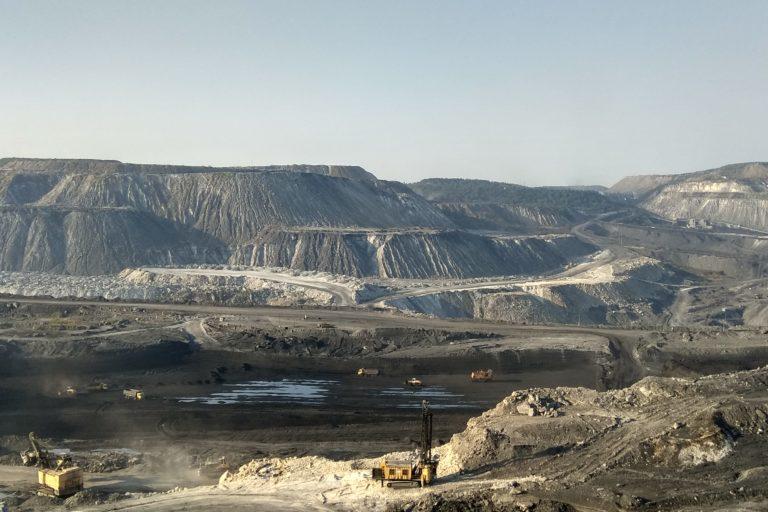
Image Courtesy: Mongabay-India
New Delhi: After India privatised coal mining this year, operations, despite the ongoing pandemic, have been continuing relentlessly as is community resistance in some areas.
The Gond adivasi community in Chhattisgarh’s Surguja district are continuing their ongoing resistance against the operations in yet another coal block -- the Kente Besan -- situated in the heart of the dense forest cover of Hasdeo Arand.
The block spreads across an area of over 17.6 sq km, across four villages, and is owned by the state-run Rajasthan Rajya Vidyut Utpadan Nigam Limited. A public hearing is scheduled to take place on July 14 as part of the clearance process required for the coal block.
The current opposition to the process of operations of the mine is rooted in the previous experiences of tribal communities, who have been alleging that mining operations in Hasdeo Aranya’s 98% forest covered land, spanning across 170,000 hectares, will mean devastation for their natural habitat-- their livelihoods and cultural identities.
In 2009, Hasdeo Arand was designated a “No-Go” zone for mining because of its rich forest cover. However, this was later over-turned. Currently, the acquisition and operations process is at different stages in various coal blocks, including Parsa, Parsa East, Kente Besan and Tara coal block. The region has a total of 22 blocks.
On June 23, 2011, the then Union Environment Minister Jairam Ramesh granted forest clearances to three coal blocks—Tara, Parsa East and Kente Besan, but promised that no further clearance would be given to any other coal mining projects in this region.
A letter requesting postponement of the public hearing on July 14.
Ramlal Kariyam, a resident of the region, told NewsClick: “Kente extension opening has posed a huge risk for us after going through the violations, as witnessed in the case of the Parsa coal block. If the clearances to Kente are given, it will be a big blow to our natural habitat and the tribal communities in the area. Mining activity means that we will lose our forest produce.”
Seeking postponement of the public hearing due to COVID-19 infections, rains etc, Karyiam said: “People’s experiences have been bitter after the previous processes, which is why resistance against mining activity is so strong. Currently, with the rains and the Kharif season, many will not be able to participate in the public hearing process on July 14, meaning the process will not be entirely reflective of the sentiments on the ground--we see this as another way of pushing the hearing and staging consent, despite opposition.”
Previously, NewsClick reported on the demand of the tribals for scrapping of the land acquisition process undertaken in the villages of Salhi, Hariharpur and Fathepur in the Parsa coal block within Surguja and Surajpur districts which fall under the Schedule V region. The communities claim that the process of acceleration of coal mining is in violation of their rights under the Fifth Schedule of the Constitution and the Panchayat (Extension to Scheduled Areas) Act or PESA Act, which makes it mandatory to secure written consent letters from gram sabhas for land acquisition for any project.
For the communities, the biggest bone of contention has been the invocation of the Coal Bearing Act, which is at the heart of giving clearances to mining in the region. In December last year-- the Central government invoked the Coal Bearing Areas (Acquisition & Development) Act, 1957 in order to acquire over 700 hectares.
The Act allows the Central government, if it is satisfied that coal is extractable from the whole or part of a tract of land, to acquire it for mining within two years of notifying that it intends to prospect for coal in the area. The Coal Bearing Act is based on the principle of eminent domain, whereby the government has the power to take over private land and convert it into public use.
The land goes out of the hands of people in any coal bearing area as soon as a notification under Section 4 (for exploration of coal) of the Coal Bearing Act is issued. Further, with the notification of Section 7 (intention to acquire) of the Act, the only right of the project-affected people is to file objections within 30 days and claim compensation.
Activists state that the go-ahead and the speed of mining activity in the region is also violative of the Supreme Court order from 2020, which states that if an area falls in an eco-sensitive zone, neither the Centre nor state government will have the right to mine it.
Speaking to NewsClick, Alok Shukla from the Committee to Protect Hasdeo, said: “This year, the movement to protect our dense forest cover reaches a milestone of 10 years. We have clearly seen the lack of consent from Gram Sabhas, which were sidelined while giving a go-ahead to multiple mining operations and acquisition processes in the region.”
He said the Congress government, before coming to power in the state, had opposed these very issues and was elected on the promise that eco sensitive zones, which people rely on so heavily, will be protected. “
“People are fighting the battle for recognition of land rights and the processes find their basis in clear violations of tribal rights. The current protests over mining in Kente are just an extension of the long-standing movement of people to protect their habitat,” Shukla added.
Get the latest reports & analysis with people's perspective on Protests, movements & deep analytical videos, discussions of the current affairs in your Telegram app. Subscribe to NewsClick's Telegram channel & get Real-Time updates on stories, as they get published on our website.









